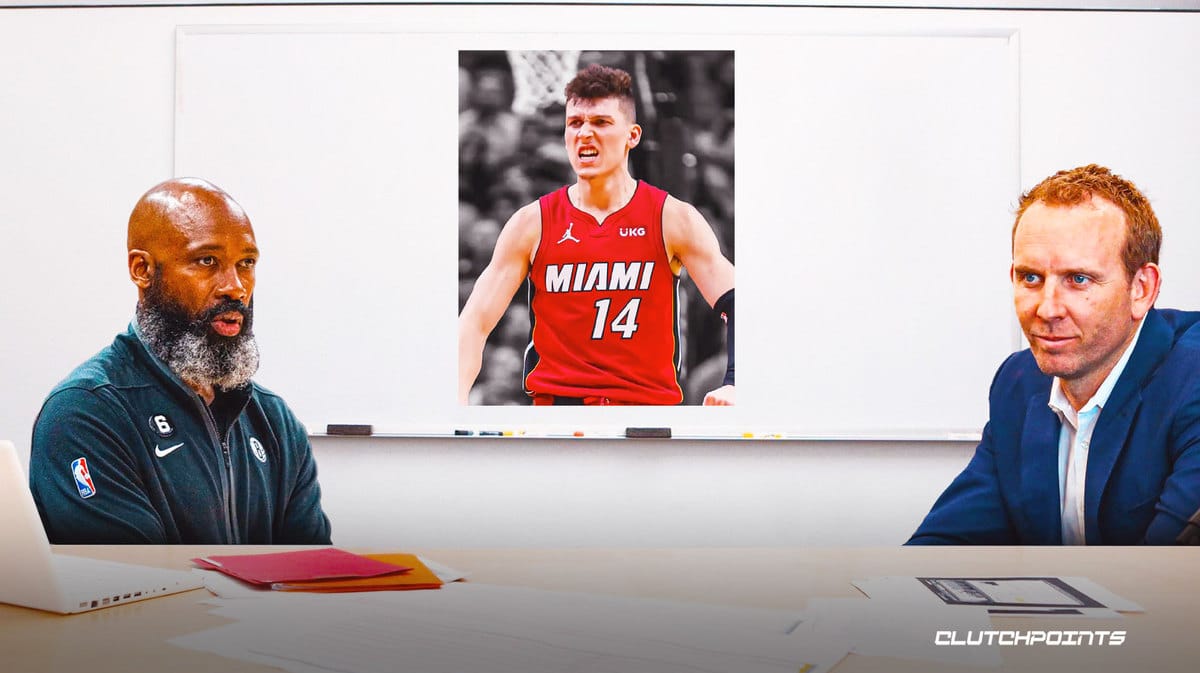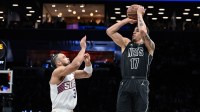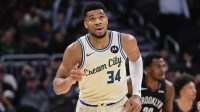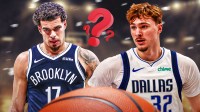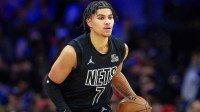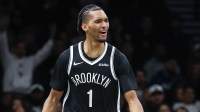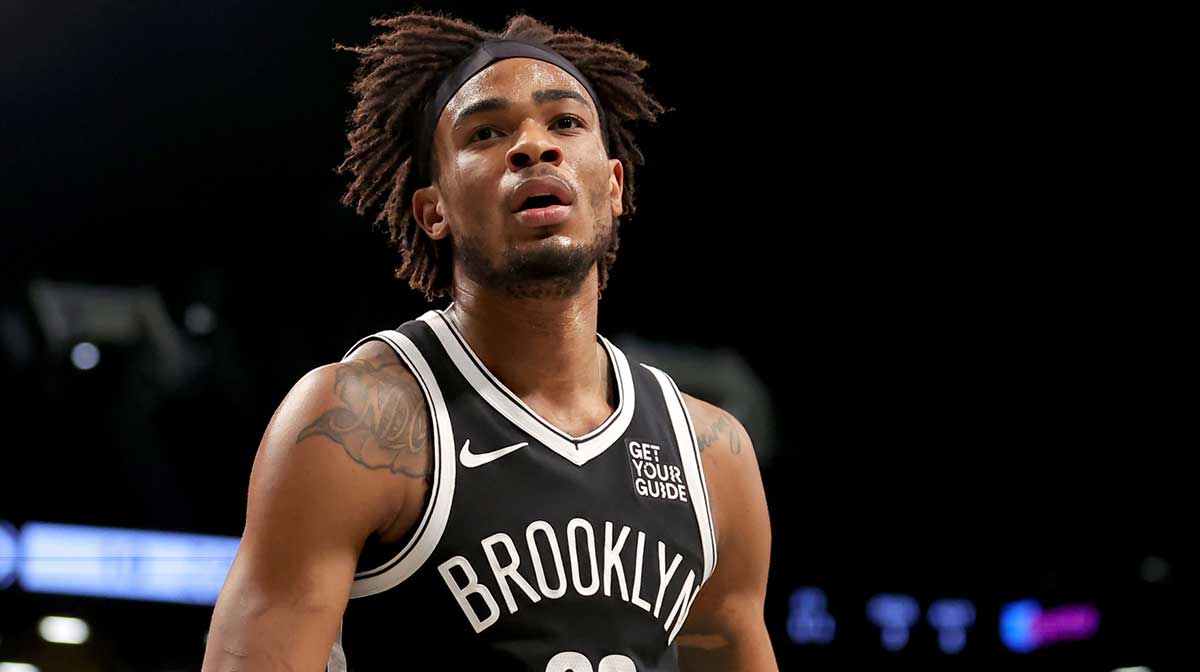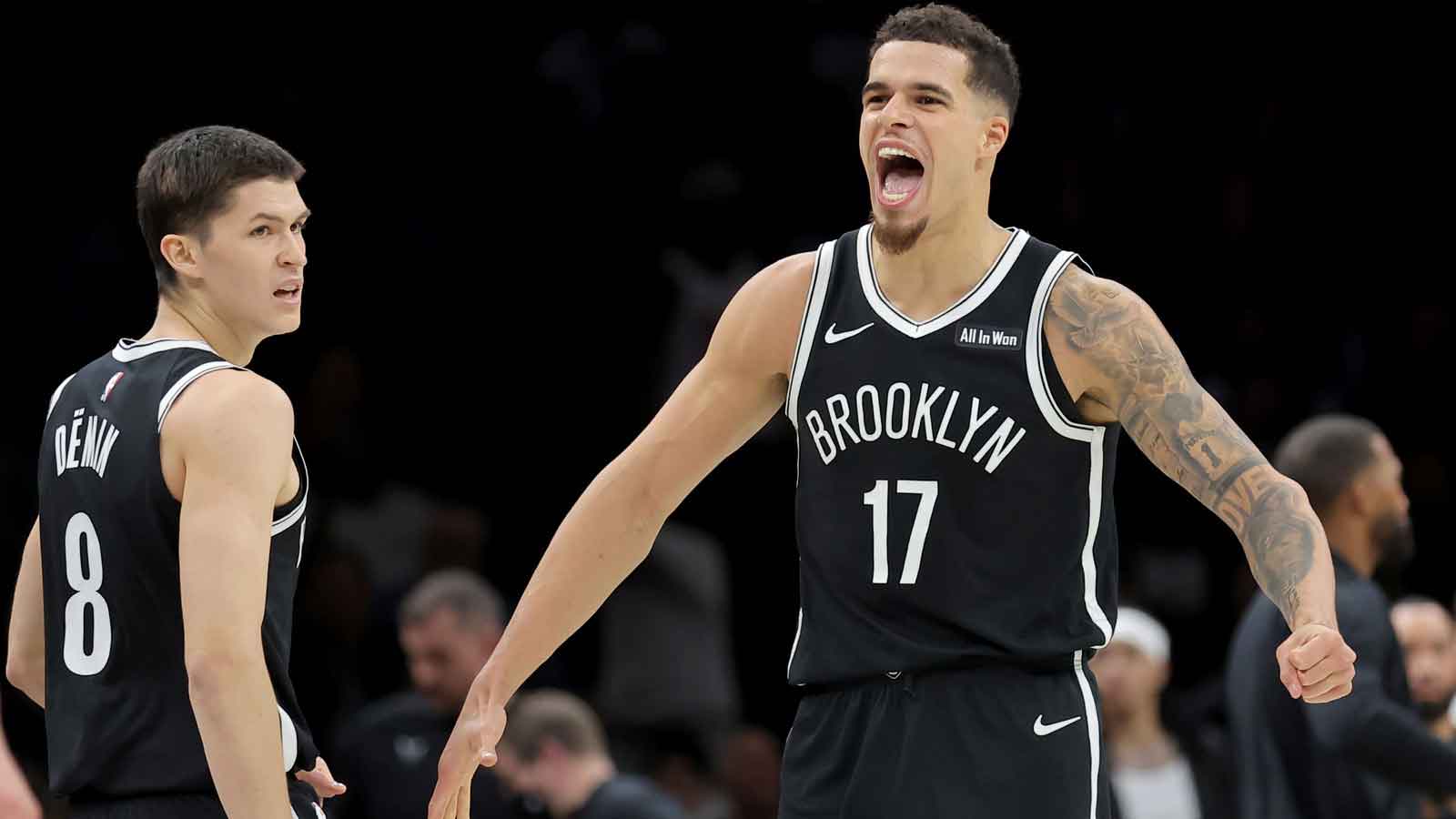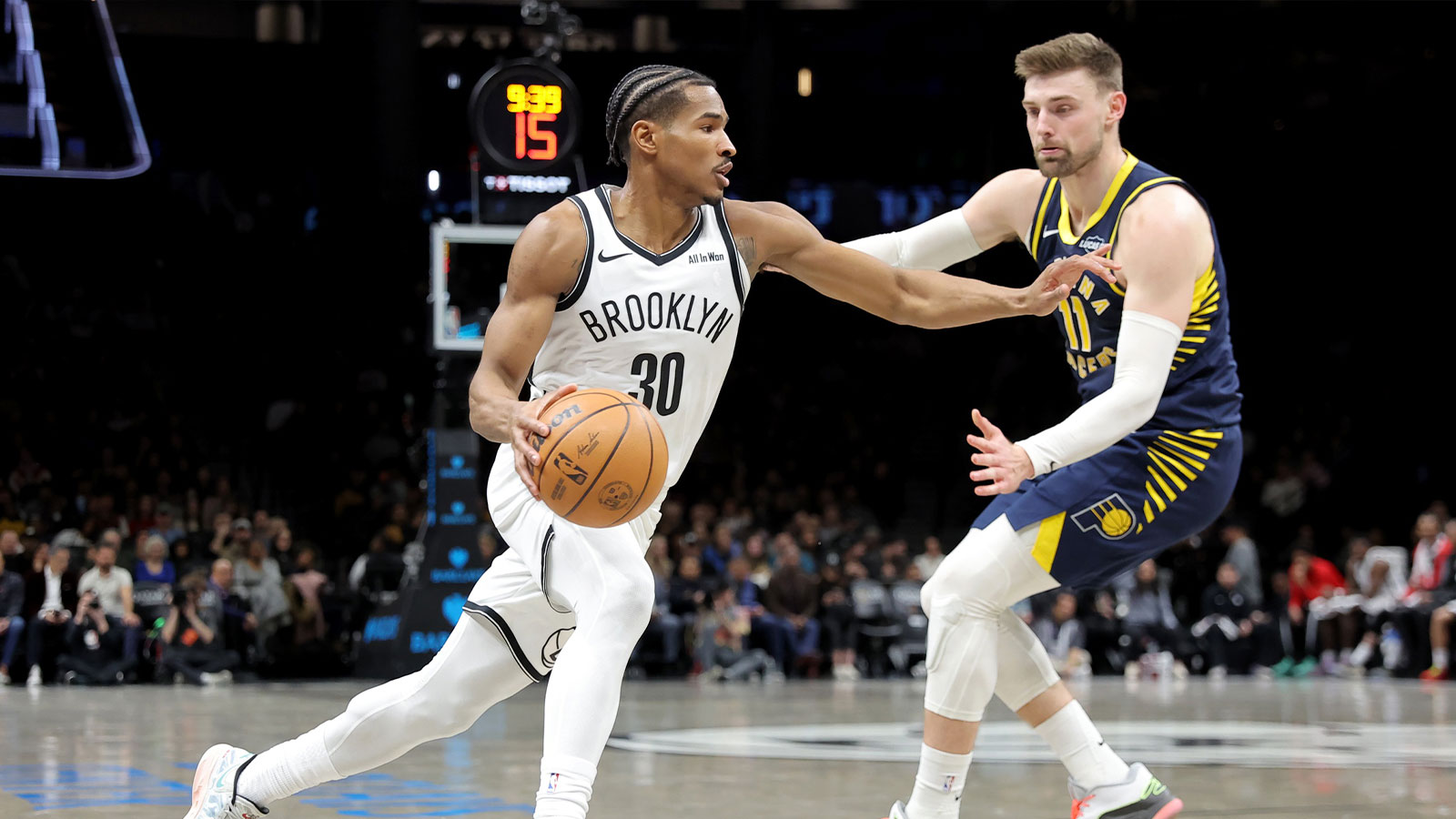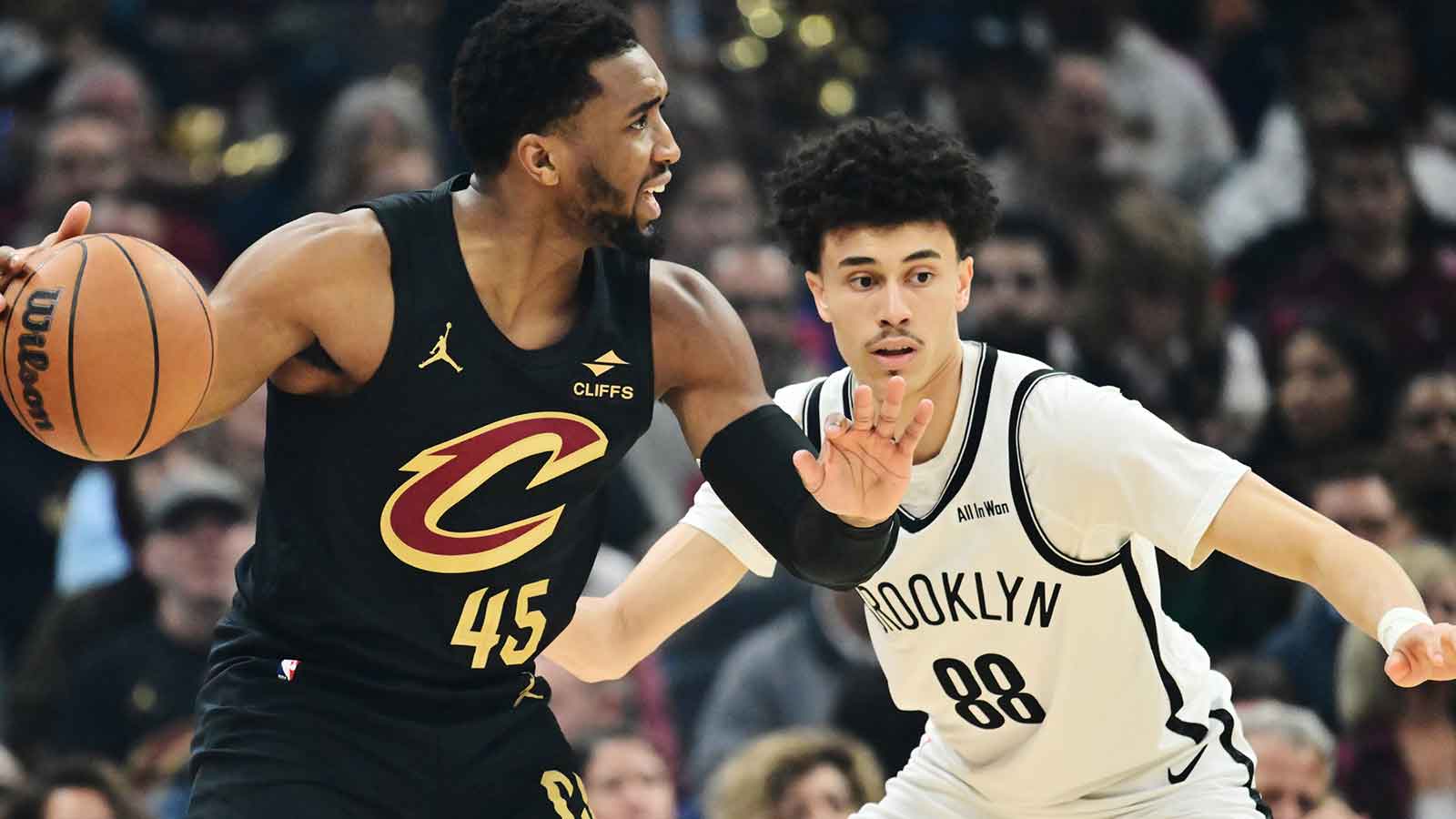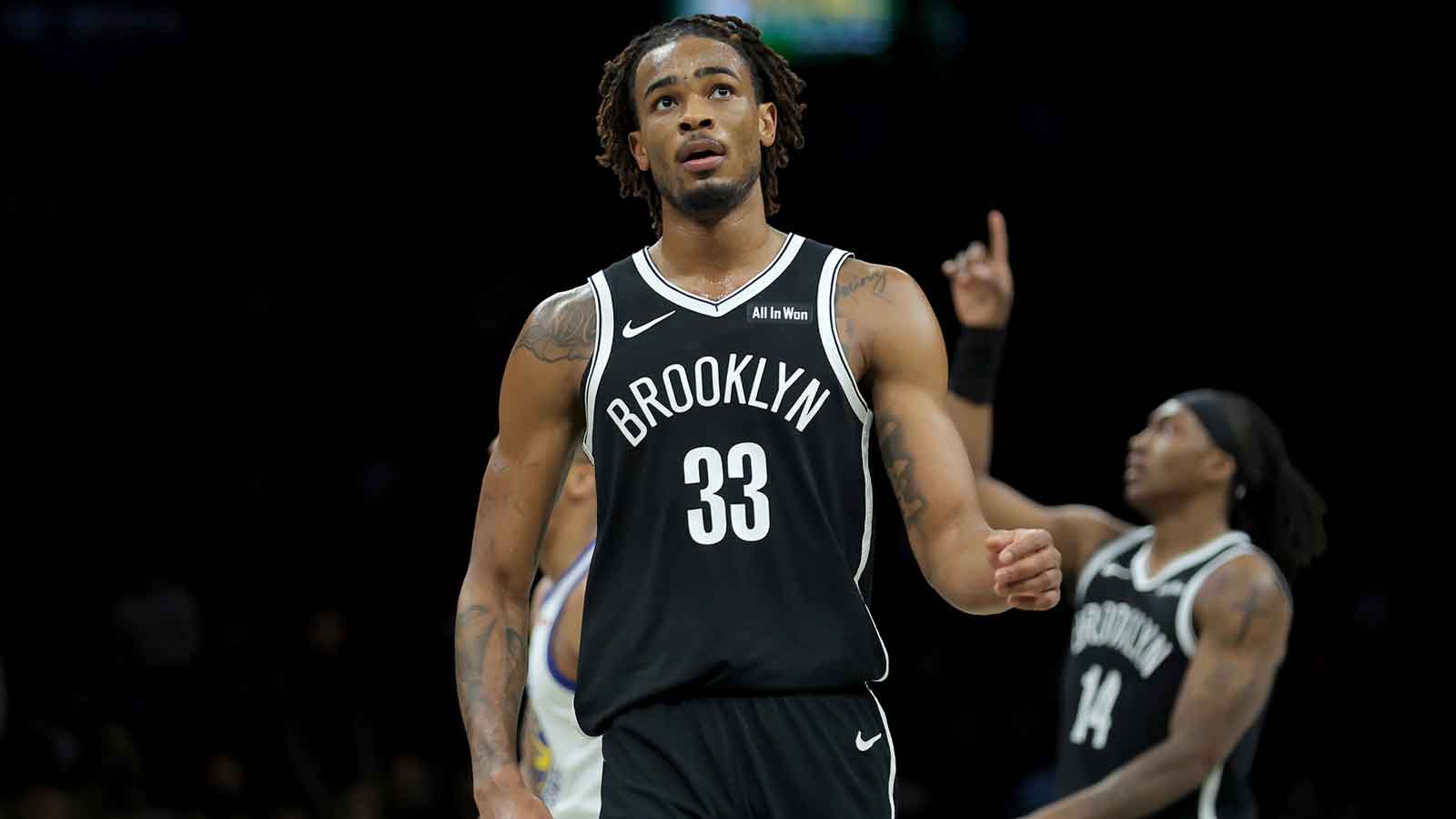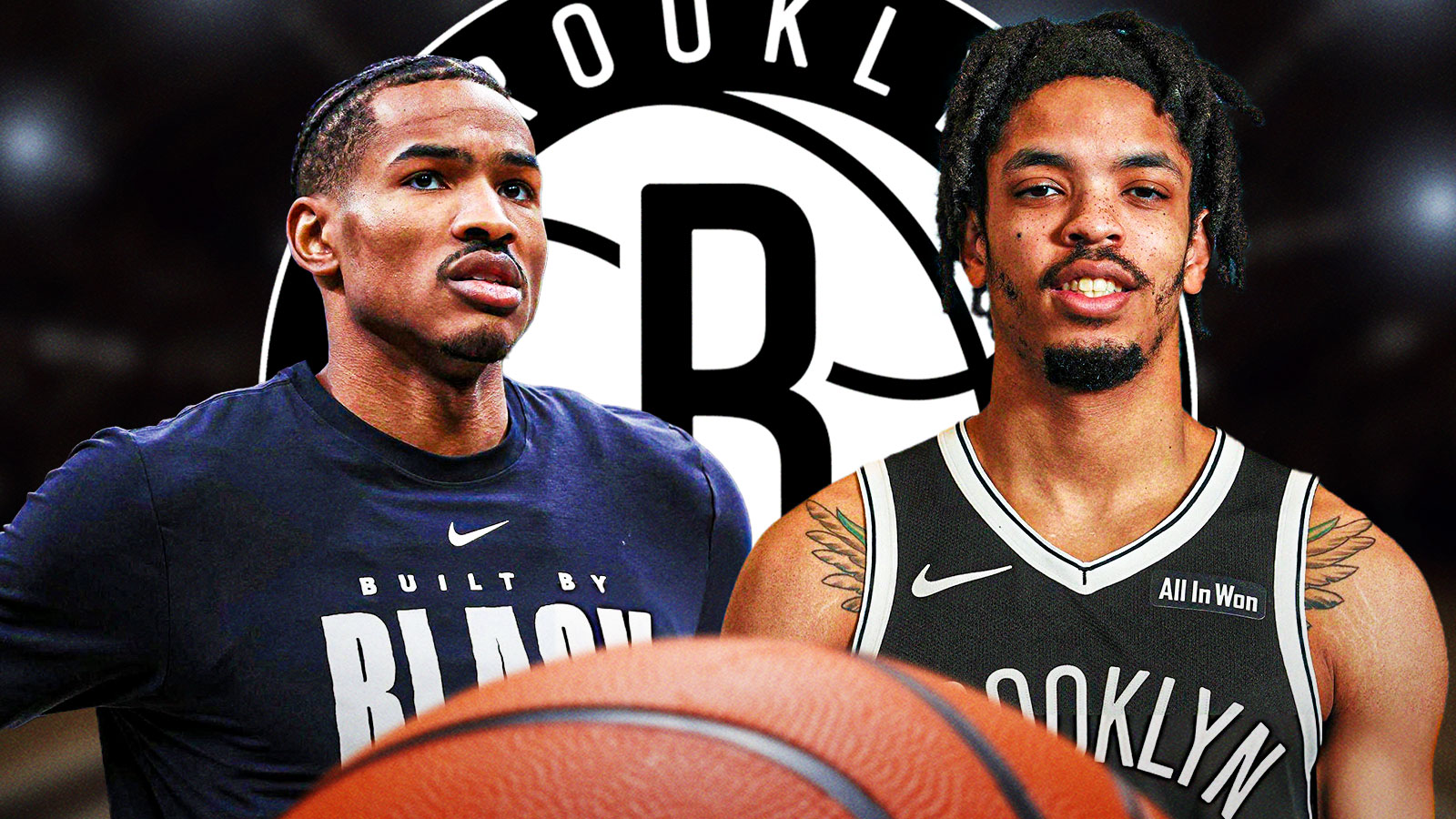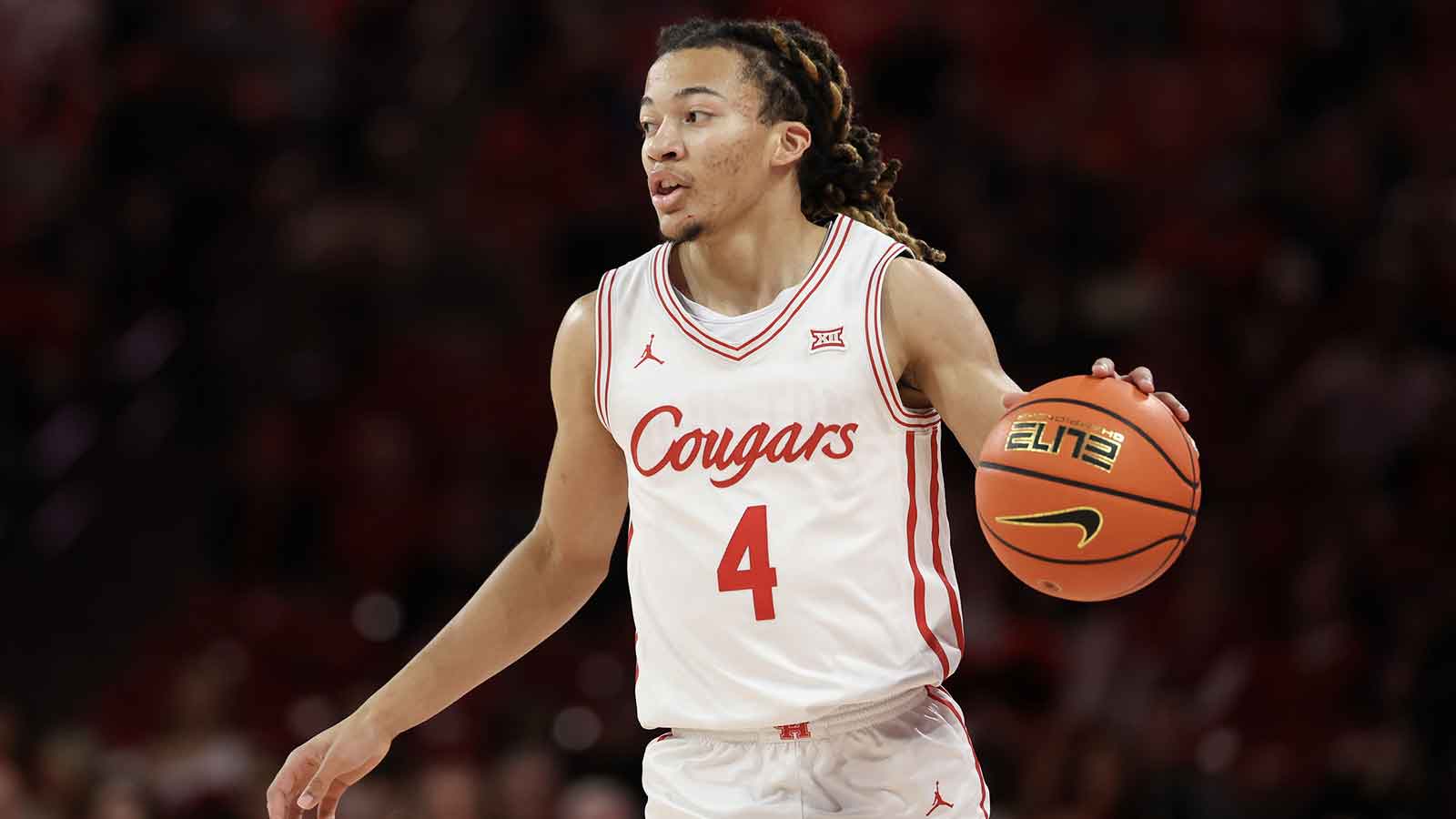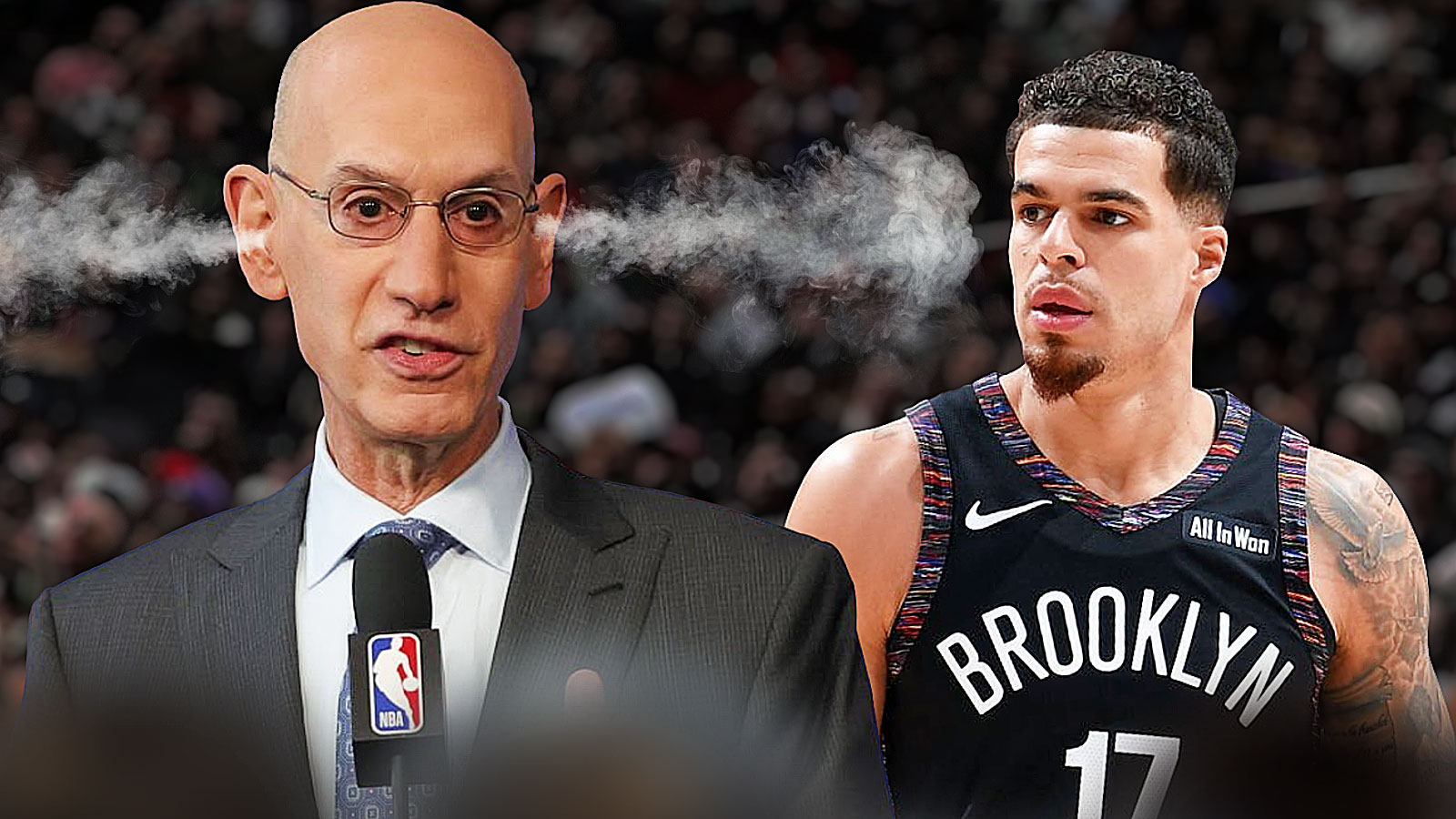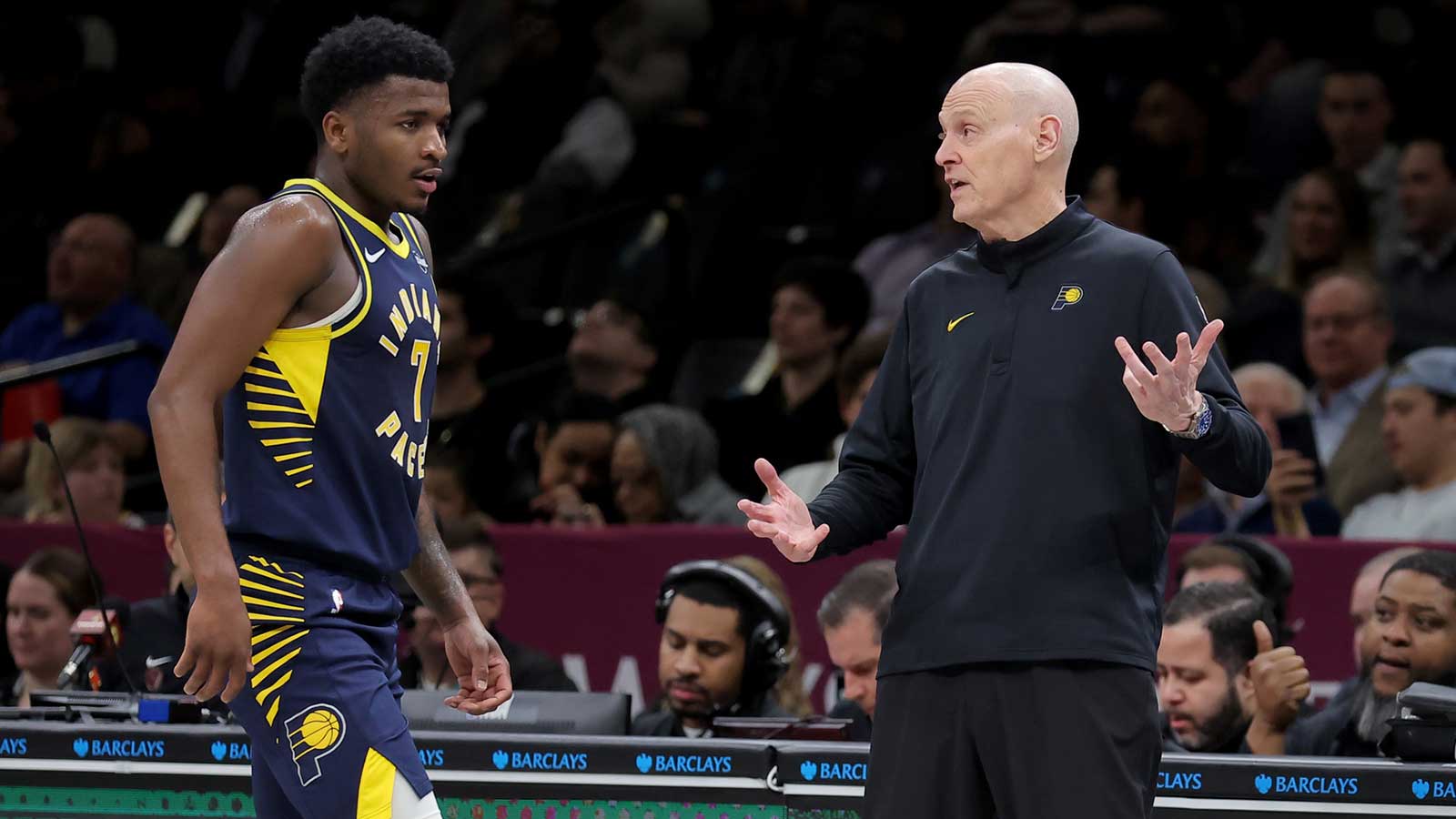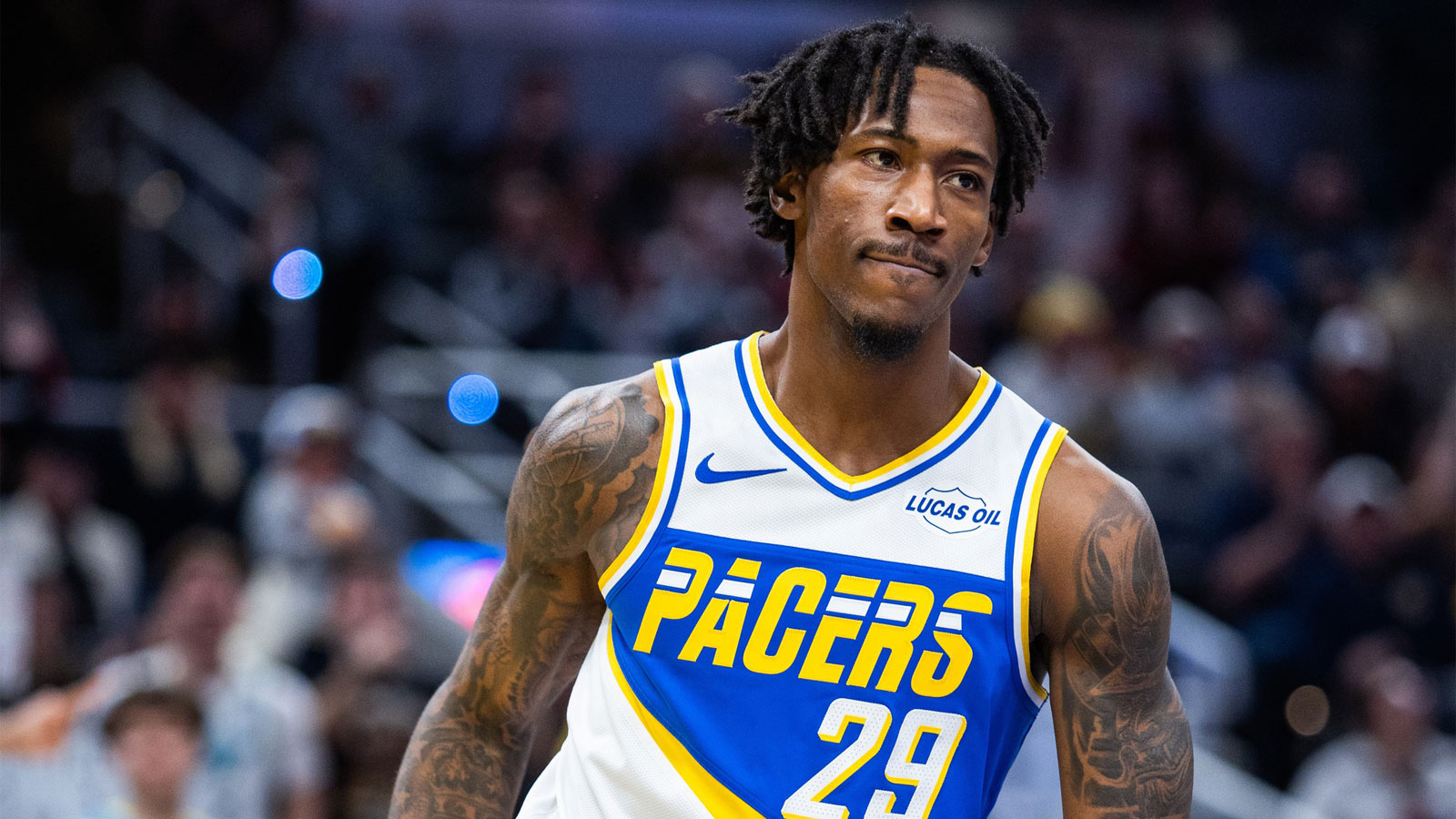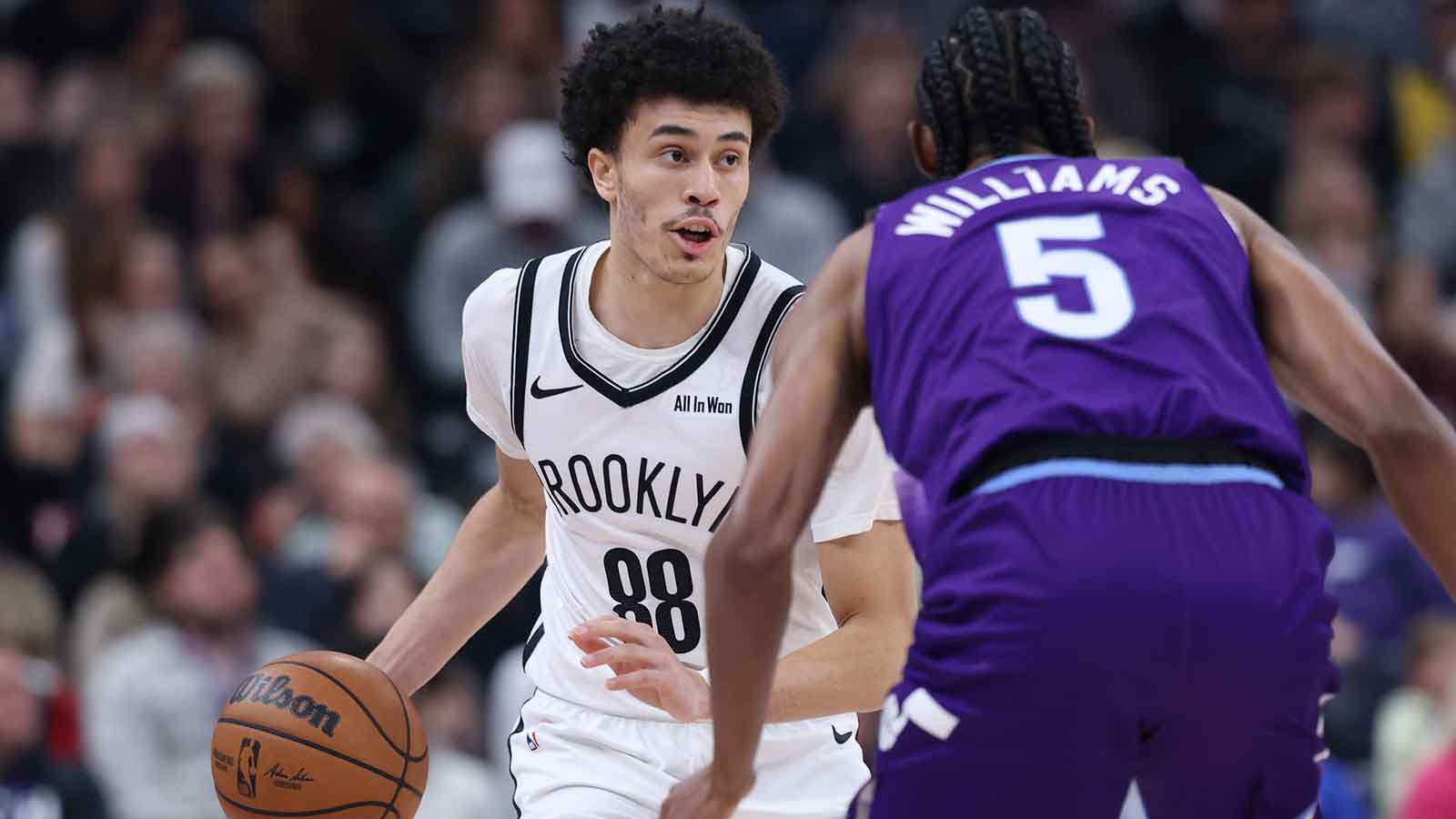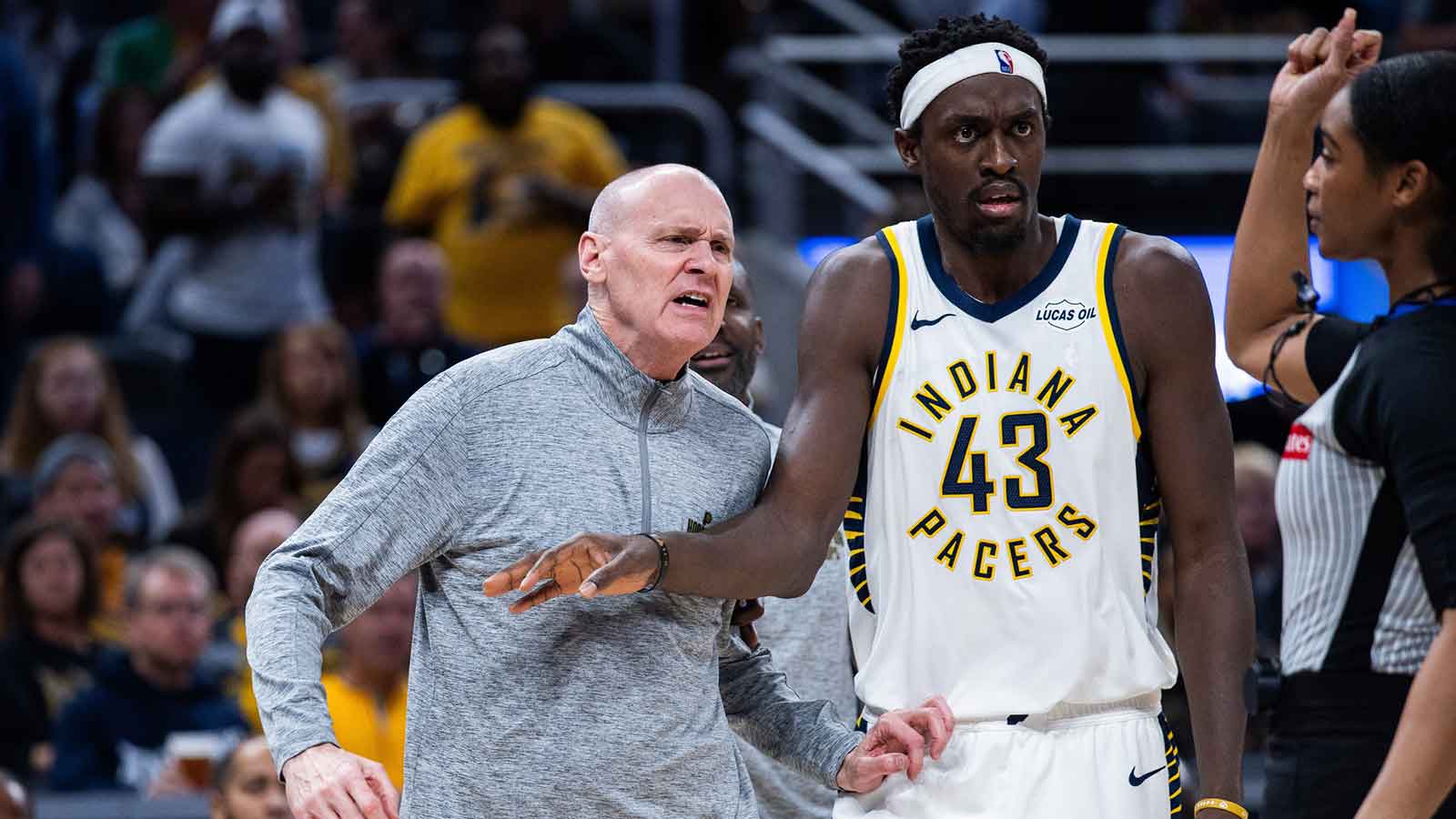Speculation surrounding the Brooklyn Nets ahead of the offseason centered on a potential blockbuster deal for Damian Lillard. The Blazers star finally requested a trade Saturday, but his desire to play only for the Miami Heat brought Nets rumors to a screeching halt.
However, with the Heat lacking the assets to facilitate a Lillard trade alone, Brooklyn has been connected to Tyler Herro as a potential third team. The Nets, who are armed with seven tradable first-round picks, have the capital to unlock a Lillard deal for Miami. With that, we make the case for and against Brooklyn getting involved.
Nets' case for Herro
The basketball logic for acquiring Herro centers on Brooklyn's lack of high-level shot creation. Mikal Bridges flashed All-Star potential in 31 games with the Nets last season but is better suited in a secondary ball-handling role. Spencer Dinwiddie looked out of place while trying to lead Brooklyn's offense during a first-round sweep against the Philadelphia 76ers. And while Cam Johnson is developing as an offensive creator, his greatest strength remains his knockdown spot-up shooting.
Herro is 23 years old and averaged 20.4 points per game on 44/39/90 shooting splits over his last two seasons. He would instantly slide in as Brooklyn's most natural shot creator. His high-level three-point shooting (38 percent on 8.0 attempts per game last season) would go a long way in a backcourt that currently includes Dinwiddie, Cam Thomas, Lonnie Walker, Dennis Smith Jr and Edmond Sumner, none of whom have shot over 35 percent from deep for their careers.
Tyler Herro put on a show in the Heat W.
41 PTS (career-high)
6 REB
10 3PM (career-high) pic.twitter.com/T8DYYLUuw4— NBA (@NBA) December 16, 2022
While Herro is not regarded as an elite playmaker, he's looked increasingly comfortable facilitating amid increased ball-handling responsibilities, averaging 6.0 assists per 100 possessions over the last two seasons.
From a team-building perspective, Brooklyn can potentially acquire an asset at a discount rate. It has been widely reported that Portland has no interest in Herro, with Scoot Henderson, Shaedon Sharpe and Anfernee Simons in place as the backcourt of the future. Miami can offer a maximum of two first-round picks for Lillard due to the Stepian Rule, which prevents teams from trading first-rounders in back-to-back years.
This makes finding a third team to offer additional draft compensation for Herro the Heat's only viable route to assembling a package. The Nets can leverage that desperation to acquire him on the cheap. One framework that makes sense is Brooklyn offering a 2025 first via Phoenix, plus a salary filler such as Dinwiddie for Herro.
Acquiring a 2025 first would unlock the Heat's 2024 and 2026 firsts to be used in a trade.
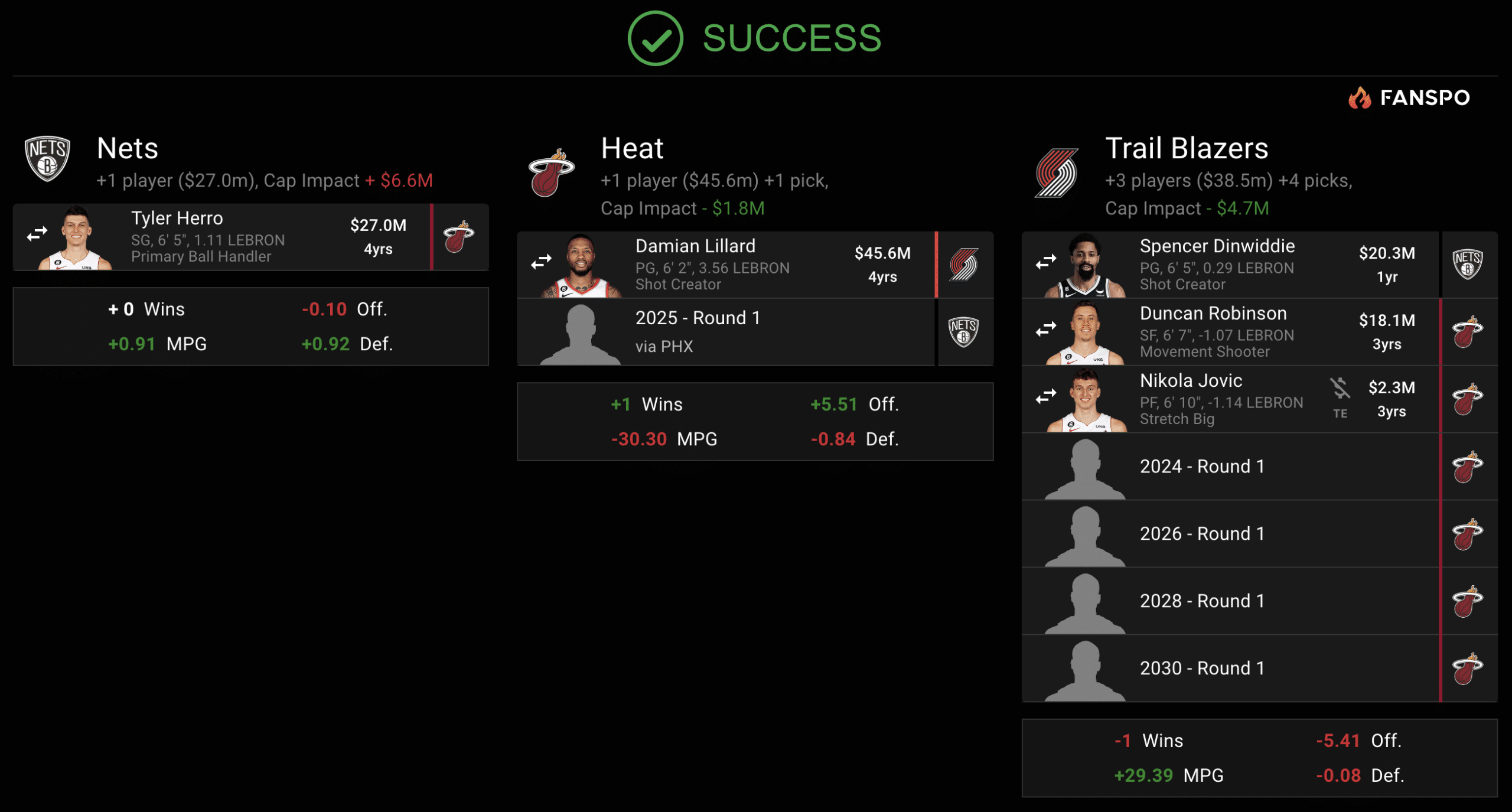
Dinwiddie and what should be a late first-rounder is a small price for a player who can help fill Brooklyn's most glaring need. The Nets would then have Dorian Finney-Smith and Royce O'Neale, plus multiple first-round picks, to use in a trade for a point guard.
Nets' case against Herro
The top argument against the Nets trading assets for Herro is simple: they would be helping an Eastern Conference foe build a super team. A big three of Lillard, Butler and Adebayo would put Miami at the top of the East for the next two seasons. However, Lillard is turning 33, and the Nets are several moves away from competing for a title. Miami depleting all of its assets for the Portland star, who will be making $59 million and $63 million in his age 35 and 36 seasons, may not be the worst thing for a Brooklyn team several years away from contending.
Then comes the question of Herro's four-year, $120 million contract. Do the Nets want to pay $30 million AAV over the next four seasons for a player who has never made an All-Star team? It's a fair question to ask. However, Brooklyn just signed Cam Johnson, a less decorated offensive player, to a four-year, $108 million contract.
If the Nets believe Herro can continue his offensive development, his contract should have some flip value in the coming seasons. At the very least, it could be used as a salary filler in negotiations for a star.
Overall, Herro makes sense for the Nets IF they can land him at a discount rate. If the Heat guard can be had for one of their non-premium first-round picks and a salary-filler, there is little downside to the move for Brooklyn. If several teams are willing to surrender assets for Herro in a Lillard deal, expect the Nets to go another direction rather than engage in a bidding war that will help Miami build the East's next super team.

